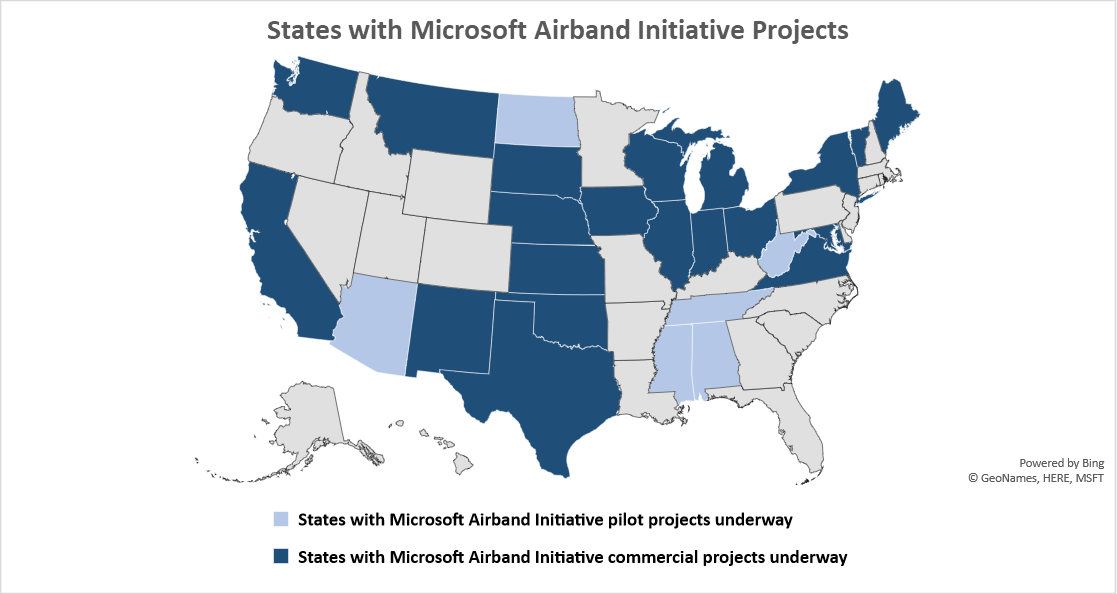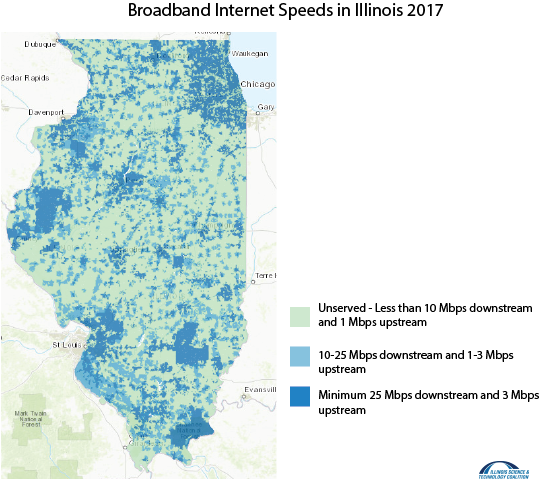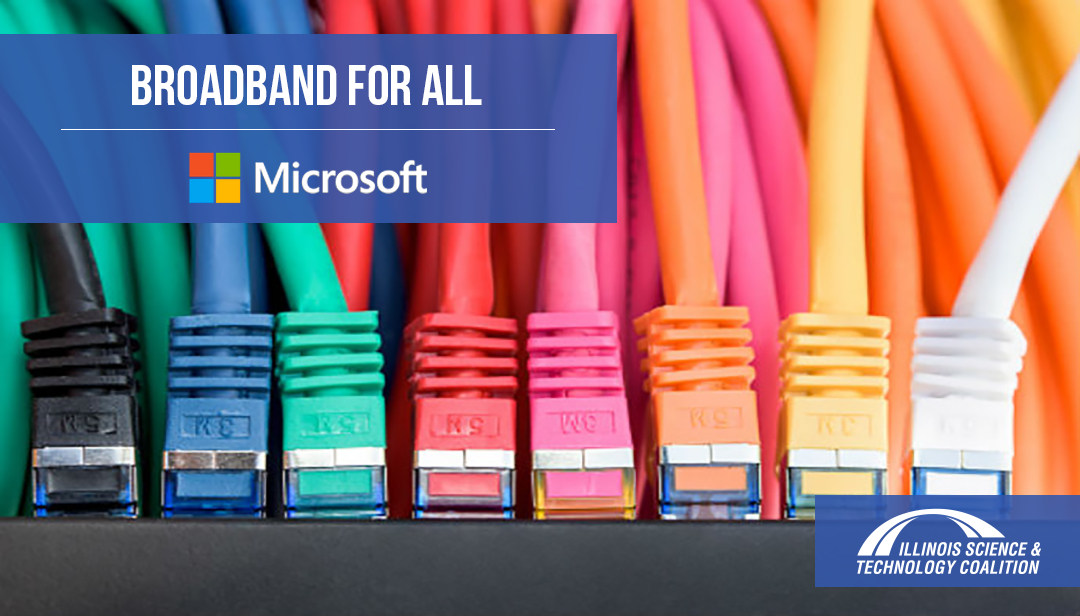How Microsoft’s Airband Initiative is helping more Illinoisans access high-speed internet
Broadband internet is something that many of us take for granted, but high-speeds provided by broadband are still a limited resource in many parts of rural America. The FCC estimates 21.3 million people in the United States still rely on dial-up connections, or do not have access to the internet at all. As our economy becomes increasingly more reliant on participation in digital technologies, it’s more critical than ever that rural populations across Illinois are not left behind.
Illinois’ Department of Commerce and Economic Opportunity (DCEO) has identified the expansion of broadband as essential to strengthening our state economy. To ensure broadband is more widely accessible, the State launched the “Connect Illinois Initiative” as part of the Rebuild Illinois legislation passed in June. Rebuild Illinois allocates $420 million for broadband expansion, including $400 million for DCEO grants that support broadband deployment projects. The remaining $20 million will go to repair and expand the Illinois Century Network, which provides internet services to schools, hospitals, and other institutions in the state.
The private sector is also stepping up to meet the challenge. Microsoft is taking the lead to increase access to broadband across rural America. In this Catalyst, we highlight Microsoft’s Airband Initiative in rural America and explore how it’s helping to increase high-speed internet access for Illinoisans.
Subscribe to get the Catalyst newsletter sent to your inbox.
The Microsoft Airband Initiative
The Microsoft Airband Initiative aims to increase broadband connectivity worldwide. In the US, Microsoft is working in 26 states to connect more rural Americans to broadband. To accomplish this goal, Microsoft is leveraging both pilot projects and commercial partnerships.
By leveraging pilot projects, Microsoft is able to assist local partners as they test new business models and technologies. A promising technology being tested is a device that uses unassigned broadcast spectrum often called “TV white spaces” that can carry signals over much longer distances and pass through terrain, walls and other obstacles. TV white space devices have the potential to reach 3 million unserved people in rural America.
Commercial partnerships allow Microsoft to help local telecommunications companies test cost-effective strategies to connect rural America to broadband. Microsoft is building commercial partnerships to expand broadband access in the state.

Source: Microsoft 2019
Airband’s impact in Illinois
FCC data show that an estimated 38% of households do not have access to broadband in rural Illinois. This figure includes many who have internet access, but not at speeds sufficient for full participation in the digital economy. Microsoft’s own regional study suggests that up to 6.6 million people in Illinois (almost half of all Illinoisans) do not have access to high-speed internet. Microsoft partnered with Network Business Systems in 2018 to deploy wireless internet networks. This partnership is expected to give 127,000 rural customers in Illinois, Iowa, and South Dakota access to wireless broadband networks. Network Business Systems services northwestern Illinois.
In July 2019, Microsoft further expanded its efforts in eastern Illinois and partnered with Watch Communications to bring faster internet to more than 275,000 people, 80,000 of whom are currently unserved. The following month, Microsoft also partnered with Nextlink internet to deploy broadband internet to western Illinois.

Data Source: FCC. “Fixed Broadband Deployment Data.” 2017
Broadband access can help transform rural Illinois
Expanding broadband will help rural areas of Illinois, while benefiting key industries in the state. A study by the Bureau of Business Research at the University of Nebraska found that access to broadband increases the chance that a company will relocate to a given area. In addition, DCEO has identified four key industries that will greatly benefit from statewide access to broadband: Agribusiness and Ag Tech, Energy, Information Technology, and Life Sciences.
According to DCEO, the expansion of broadband will also aid entrepreneurs and small business owners across the state. Right now, there are several startups in Illinois that are implementing technological advancements to agricultural and husbandry practices. However, these technologies are dependent on adequate internet connections. Expanding broadband in rural Illinois will modernize our agricultural economy and spur innovation.
Broadband will not only catalyze the growth of new tech startups, it will also help build a more capable workforce in Illinois. K-12 schools can use broadband to bring in new resources into the classroom to prepare students for the future’s digital jobs. Students will be able to complete their homework at home, and have the option to take virtual classes to complement their education or to pursue a post high school degree. As the State and Microsoft work to close the broadband gap, Illinois will soon reap the benefits of improved infrastructure and increased access to opportunity.
*Revised statistic
Subscribe
Subscribe to get the Catalyst newsletter sent to your inbox.
What we’re reading
- Small Town Entrepreneurs Need Big City Broadband [Inc]
- The WIRED Guide to 5G [WIRED]
- How Corporate Innovation Centers are Fostering Startup Growth [Chicago Inno]
- Former Bear opening a Loop nonprofit hub [Crain’s Chicgao Business]
- ‘30 percent’ of Illinois state IT workforce eligible to retire [State Scoop]

